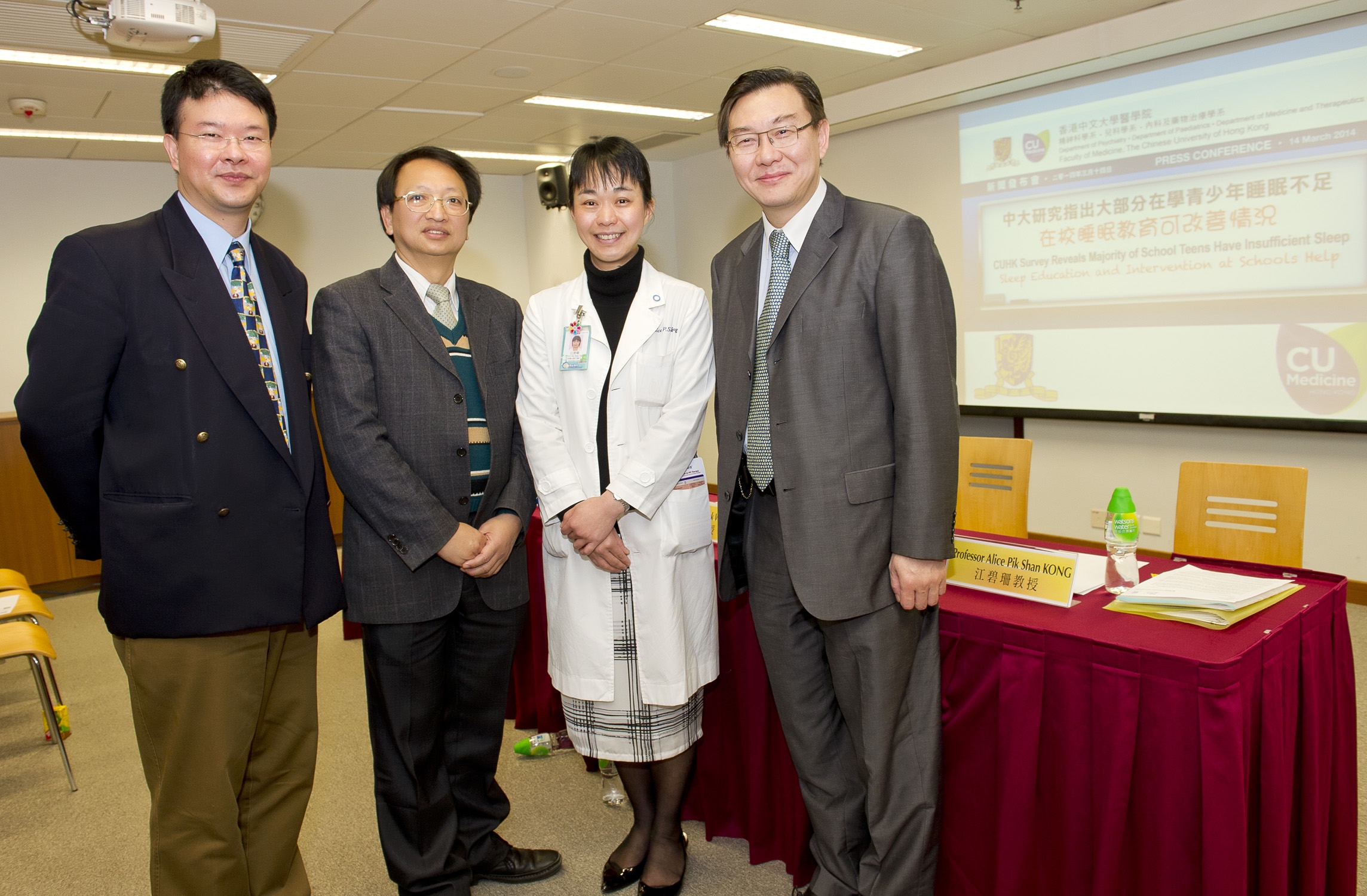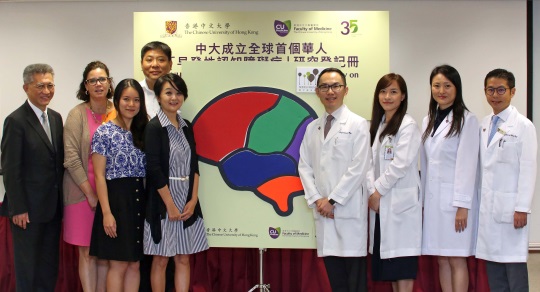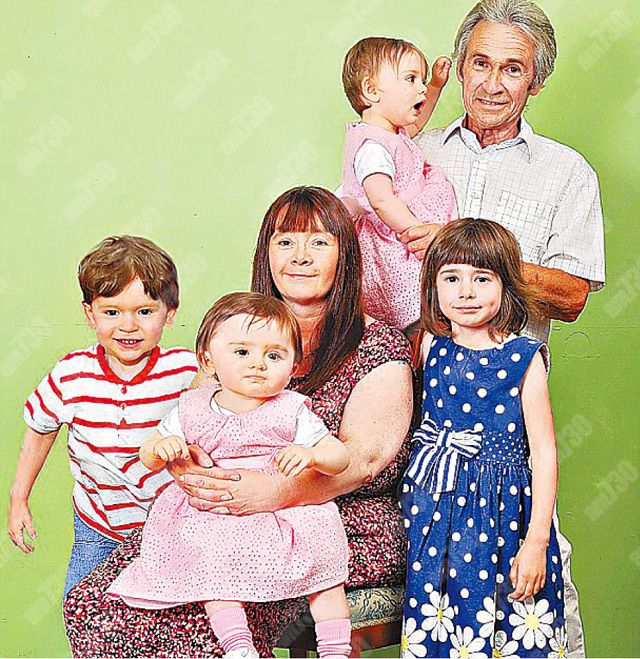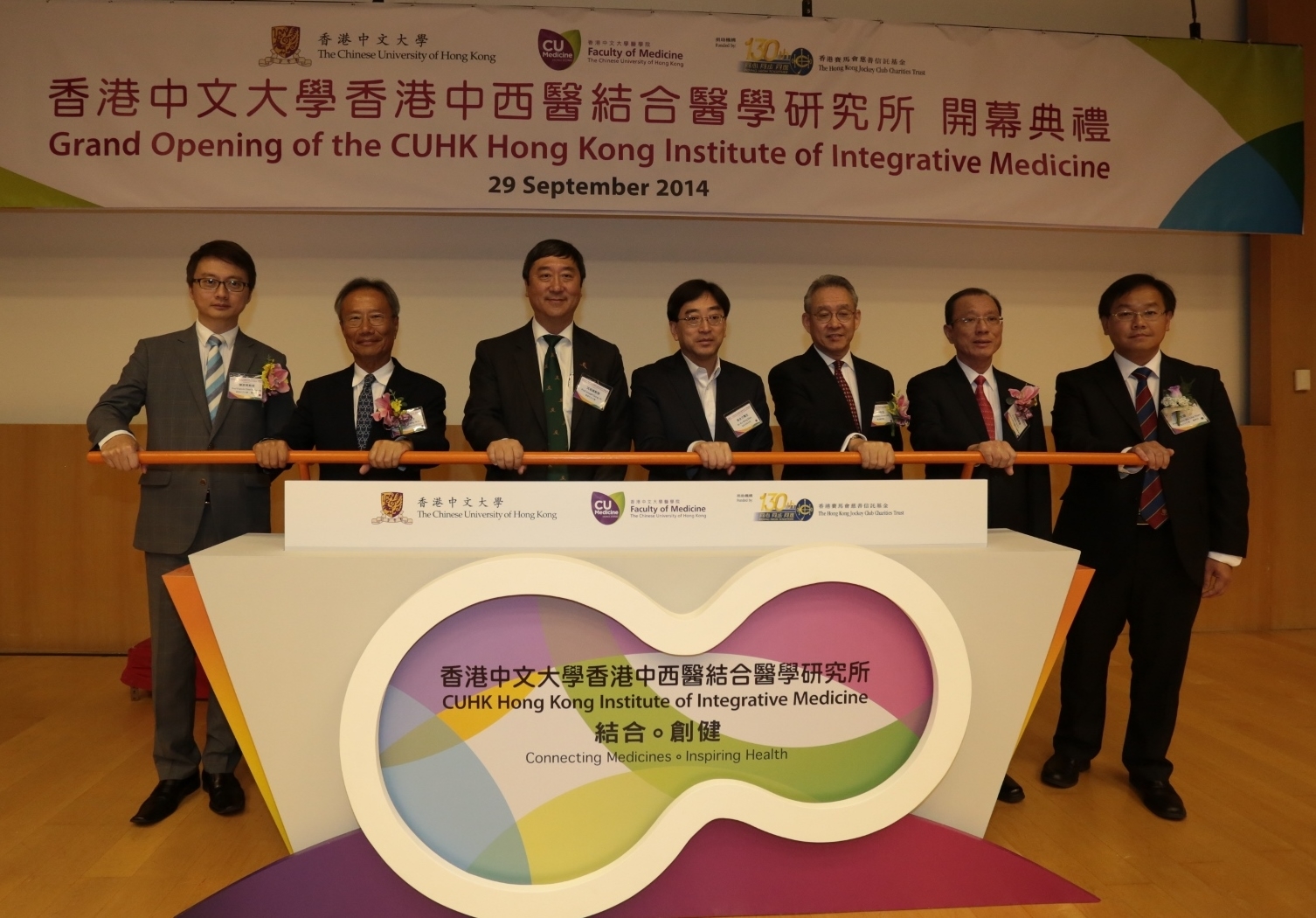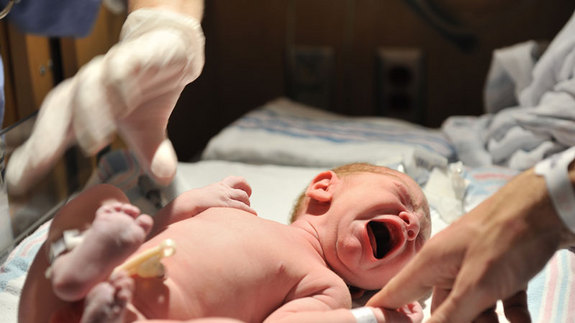Sleep Education and Intervention at Schools Help
CUHK Survey Reveals Majority of School Teens Have Insufficient Sleep
To promote healthy sleep habits among teenagers in Hong Kong, the Department of Psychiatry, Department of Paediatrics and Department of Medicine and Therapeutics of The Chinese University of Hong Kong (CUHK) jointly launched a 'Healthy Sleep, Healthy School Life' sleep education and intervention programme from December 2011 to May 2013. Findings of the programme indicated that more than half (58.4%) of the participating school teenagers rated themselves as having insufficient sleep. It was also found that sleep education at schools could help improve students' sleep habits, behavioral and psychological functioning.
Above Picture(From right) Prof. Y. K. Wing, Professor, Department of Psychiatry, CUHK; Prof. Alice Kong, Associate Professor, Division of Endocrinology and Diabetes, Department of Medicine and Therapeutics, CUHK; Mr. C. H. Hung, Principal, Assembly of God Hebron Secondary School; and Prof. Albert Martin Li, Professor, Department of Paediatrics, CUHK introduce the findings of the ‘Healthy Sleep, Healthy School Life’ sleep education and intervention programme. Insufficient sleep is a common problem among city dwellers, particularly in cities with hectic lifestyle like Hong Kong. The problem does not only affect adults but is also found in adolescents and children whose sleep duration and pattern are often influenced by school schedules, academic, social and recreational activities. Research has indicated that sleep disruption and irregular sleep pattern could lead to a variety of adverse repercussions, including mood and behavioral problems, academic deterioration, metabolic and cardiovascular abnormalities. With the support of the Public Policy Research Funding Scheme, the CUHK research team launched a 2-year programme participated by a total of 4,456 adolescents from 14 schools in Hong Kong. The programme revealed that during weekdays, a majority (94%) of the participants did not acquire 9 hours of sleep daily as recommended by the World Association of Sleep Medicine, a quarter (25%) had less than 7 hours of sleep while more than half (58.4%) rated themselves as having insufficient sleep. With an aim to raise the sleeping hours of these teenagers, a series of sleep and health education seminars were provided to the participants as well as their parents and teachers. The programme was found effective in enhancing students' knowledge about sleep, rectifying maladaptive sleep habits, and improving behavioral and psychological functioning. A pilot trial to delay school start time by a modest 15 minutes was also conducted in one of the participating schools. It has improved the subjective feelings toward sleep quantity and quality among the students. Most of the teachers (95%) and students (86%) welcomed the new school schedule. Prof. Y K Wing, Professor of the Department of Psychiatry at CUHK remarked, 'We are glad to see the positive results brought by our sleep education and intervention programme on adolescents. The programme also provided preliminary evidence on the need of integrating sleep-related health education into regular school curriculum. We would also like to thank the Public Policy Research Funding Scheme for supporting our programme.' As a pioneer in sleep-related education and research, CUHK supports the initiative of the World Sleep Day 2014 (14 March 2014) and urges the relevant authorities and stakeholders including parents, school administrators, teachers and students to recognize the importance of healthy sleep on school children and adolescents and help them adjust their daily schedule.
|
|





